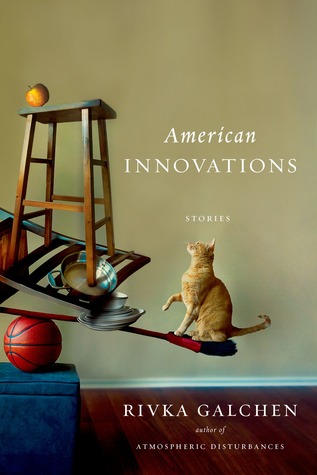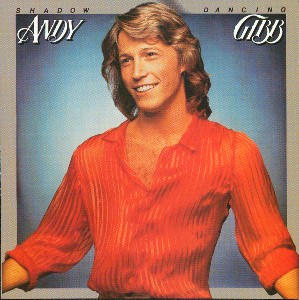Before reading American Innovations I hadn't seen the cover blurb that states: The tales in this groundbreaking collection are secretly in conversation with canonical stories, reimagined from the perspective of female characters. I don't know if understanding that beforehand would have altered my reading experience -- I am, at any rate, unfamiliar with Borge's The Aleph and Gogol's The Nose -- so I can only evaluate what I found on the page, and it was a somewhat uneven experience. For the most part, these are uncomfortable stories, veering often into the surreal (with one woman's furniture running away and another having a breast appear on her abdomen), but what was confusing to the mind often resonated in the heart.
Author Rivka Galchen definitely has a master's control of the English language as shown in this example, with a woman speaking on the phone with her husband from The Lost Order:
We hadn’t always conversed in a way that sounded like advanced ESL students trying to share emotions, but recently that was happening to us; I think we were just trying to keep a steady course through an inevitable and insignificant strait in our relationship.I was struck by that "I language along" as the perfect encapsulation of this type of conversation and there were many, many such striking moments throughout this collection. There were also a lot of esoteric bits that lost me like:
“I’m sorry, Boo,” I say. “I’m the one who should apologize.” I am suddenly missing him very badly, as if I have been woken from one of those dreams where the dead are still with us. Being awake feels awful. I language along, and then at some point in my ramblings he says to me, “I have to go now,” and then he is gone.
I washed my face with peach scrub and took care, as I generally do, not to look into the mirror too gesamtkunstwerk-ily. Instead, only in close patches.Fortunately, the NPR book review defined that for me as "A German philosophical term about the total nature of the work of art, first introduced by a mid-nineteenth century German aesthetician named Trahndorff", because I never would have looked it up; I was annoyed by the inclusion of a word like gesamtkunstwerk, and the repeated use of "the Kantian sublime", because they seemed designed to exclude non-academics from total understanding and that would be my biggest complaint: More than anything, American Innovations, with its literary allusions, feminist imperative, and post-post-modern constructions seems elitist; written for professional readers. But.
(Galchen left a "but" hanging at the end of a paragraph like that and I loved it -- one little word, so weighty.) But…like I said, there is much in this collection that is emotionally stirring: from that ironic frission a reader gets when you see characters lying or refusing to answer straight-forwardly, to the powerful way that Galchen captured a young girl's first major and unrequited crush on an inappropriately older man in Wild Berry Blue:
I begin to feel as if maybe I am going to cry because of these accumulated moments of being nothing. That's what it feels like standing so close to this type of beauty -- like being nothing…I know those feelings -- just like that -- but hadn't really remembered them until this short story, so that's definitely worthwhile. Perhaps if I could have identified more with Galchen's other themes -- she repeatedly mentions time travel, unemployed young women who have dead fathers and non-understanding mothers, writers who are also scientists, attraction to men with unwashed hair, acupuncture, manatees -- perhaps if more of her themes resonated with me emotionally I could have also connected with them intellectually.
He looks down at me, startled, then laughs abruptly. "Hi little sexy," he says. Then he laughs again, too loud, and the other cashier, who has one arm shrunken and paralyzed, turns and looks and then looks away again.
These few seconds seem like everything that has ever happened to me.
My milk somehow purchased, I go back to the table wondering if I am green, or emitting a high-pitched whistling sound, or dead…
I feel -- a whole birch tree pressing against my inner walls, its leaves reaching to the top of my throat -- the awful sense of wanting some other life.
And my final observation: I read American Innovations because it's on the 2014 Giller Prize longlist -- meant to recognise excellence in Canadian fiction -- but simply being born in Toronto doesn't make Rivka Galchen (raised in and residing in the States) a typically Canadian writer, and this book has nothing to do with Canadian themes. If anything, it seems perfectly representative of the Creative Writing Program at Colombia where Galchen is an adjunct professor, and has much in common with her colleagues Siri Hustvedt (and her The Blazing World) and Gary Shteyngart (and I wondered if her mention of Gary Gnu was a shoutout to him). I wish Canadian prizes were truly reserved for Canadian books. /end rant
The longlist for the 2014 Scotiabank Giller Prize (with my personal ranking):
The 2014 Giller Prize winner is Us Conductors
*****
Back to Wild Berry Blue and the crush on the inappropriately old, older man:
I may have been a preteen at the apex of the young-girl-crushing-on-the-older-man-who-doesn't-think-of-her-that-way-storyline. I was aghast at Tatum O'Neal's seduction of the adult camp counsellor in Little Darlings, but my heart swooned right along with Kristy McNichol over Matt Dillon.
Like everyone else I knew, I was in love with Rex Smith in Sooner or Later and also thought I might pretend to be older than 13 if that's what it would take to catch his eye.
And probably most importantly: when Manny showed up on Little House on the Prairie and Laura fell in love with him, and accidentally called him "Manly" that time, and then she fell in the crick or something, and Manny saved her and carried her to his home and wrapped her in a blanket, and Pa showed up and beat up Manny, and Manny tried to defend himself with, "What are you accusing me of? She's just a little girl". I felt just as humiliated as Halfpint as she stood up and yelled, "I'm not a little girl. I'm a woman!" And my eyes watered up as she ran home crying. And what was I (and the other Sooner or Later/Little Darlings-indoctrinated girls) supposed to make of Laura ditching her pigtails for a bun in the next season of Little House and actually snagging her Manly?
Well, what it made us think was that it might be possible to snag our own manly man (sooner or later...) and my own Tiger Beat fantasy dreamboat was Andy Gibb (which is why I named our first dog Andy, and despite the teasing from my brothers at the time, I never regretted it).
I don't see the attraction anymore, but at the time, I certainly did feel -- a whole birch tree pressing against my inner walls, its leaves reaching to the top of my throat -- the awful sense of wanting some other life. One in Manchester or Melbourne or L.A. -- you know, wherever Andy wanted to live was fine with me.





